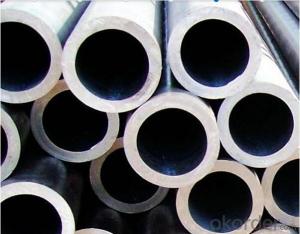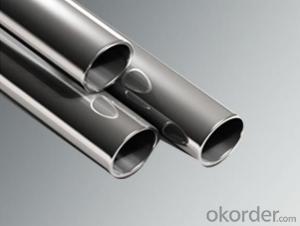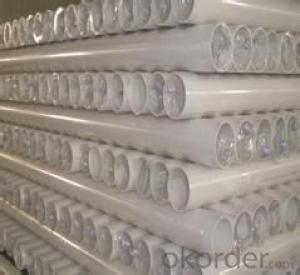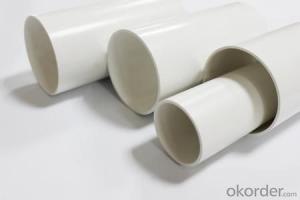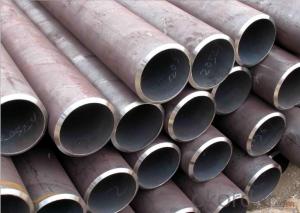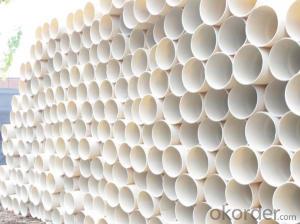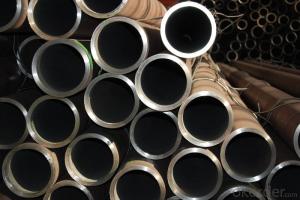astm a106 gr.b sch40/sch80/sch120/schxxs steel tube & seamless pipe for structure/construction
- Loading Port:
- Shanghai
- Payment Terms:
- TT OR LC
- Min Order Qty:
- 25 m.t.
- Supply Capability:
- 5000 m.t./month
OKorder Service Pledge
OKorder Financial Service
You Might Also Like
Specifications
seamless steel pipe
1.Standard :ISO 2531,EN 545,EN598,GB13295,ASTM C151
2.Size:DN80-DN1200
Hot Rolled Steel Structure Seamless Pipe
Detail specification:
1,The executable standard: GB/T8162-1999,GB/T8163-1999,GB/3087-1999, ASTM A106,ASTM A53,ASTM A335,API SPEC 5L,API SPEC 5CT,DIN17175,DIN17100
2, Material : 45 #, 10 # - Q345B (16 mn) and alloy material, A, B steel grade, X42 - X70, K55, J55 and N80, L80, C90, C95, P110, Q125
3, outside diameter : φ5mm-824mm
4, wall thickness: 0.8-60mm
5, Length: 4m-12m or as customer's requirement
6, product package: Spray painting; Oil painting; Anti-corrosion insulation; Groove or even mouth; The pipe protection
- Q: Can steel pipes be used for the construction of railway tracks?
- No, steel pipes cannot be used for the construction of railway tracks. Railway tracks are typically made of steel rails that are specifically designed and manufactured for this purpose. Steel pipes lack the necessary shape, strength, and dimensions required for supporting heavy loads and facilitating the smooth movement of trains.
- Q: What are the different types of steel pipe connections for steam pipelines?
- There are several types of steel pipe connections commonly used for steam pipelines. These include threaded connections, flanged connections, welded connections, and grooved connections. Each type has its own advantages and is chosen based on factors such as the pipe size, pressure, and temperature requirements, as well as the ease of installation and maintenance.
- Q: Can steel pipes be used for irrigation pivot systems?
- Yes, steel pipes can be used for irrigation pivot systems. Steel pipes are often used in irrigation systems due to their strength, durability, and resistance to corrosion. They can withstand the pressure and stress of the water flow in pivot systems and are less prone to leaks or cracks compared to other materials. Additionally, steel pipes can be easily welded or threaded together, making them a convenient choice for irrigation systems that require a variety of lengths and configurations. However, it is important to consider the specific requirements of the irrigation pivot system and consult with professionals to ensure that the chosen steel pipes are suitable for the specific application.
- Q: How are steel tubes represented?
- If it is seamless steel pipe, welded steel pipe, the method of expression is: nominal diameter refers to the outer diameter (diameter * wall thickness). The unit is mm. [for example, seamless steel tubes of phi 32 * 3. It means that the nominal diameter (outside diameter) is seamless steel pipe of phi 32mm and wall thickness 3mm.
- Q: How are steel pipes used in the manufacturing of ships?
- Steel pipes are used in the manufacturing of ships for various purposes such as constructing the hull, supporting structural components, and facilitating the transportation of fluids and gases within the vessel.
- Q: How are steel pipes used in structural applications?
- Steel pipes are commonly used in structural applications due to their high strength and durability. They are used for various purposes such as supporting structures, transferring loads, and providing stability. Steel pipes can be used as columns, beams, or trusses in buildings, bridges, and other structures. They are also used for underground water and gas pipelines, as well as in industrial and manufacturing facilities. Overall, steel pipes play a crucial role in providing stability and strength to structural applications.
- Q: How are steel pipes used in the manufacturing of solar power systems?
- Steel pipes are used in the manufacturing of solar power systems primarily for structural support and to house electrical wiring. They provide a sturdy framework for mounting solar panels, ensuring stability and durability. Additionally, steel pipes are utilized for underground wiring installations, protecting the electrical connections within the solar power system.
- Q: Can steel pipes be used in the automotive industry?
- Yes, steel pipes can be used in the automotive industry. They are commonly used for various applications such as exhaust systems, fuel lines, and structural components due to their strength, durability, and resistance to heat and corrosion.
- Q: What are the factors affecting the price of steel pipes?
- There are several factors that can affect the price of steel pipes. Some of the key factors include the cost of raw materials such as iron ore and other metals, energy prices, labor costs, transportation costs, and market demand and supply dynamics. Additionally, currency exchange rates, government regulations, and trade policies can also impact the price of steel pipes in the global market.
- Q: What is the maximum operating temperature for steel pipes?
- The specific grade of steel used typically determines the maximum operating temperature for steel pipes. Carbon steel pipes, for instance, can generally endure temperatures ranging from 800-1000 degrees Fahrenheit (427-538 degrees Celsius). On the other hand, stainless steel or high-temperature alloys can withstand even higher temperatures, exceeding 1200-1500 degrees Fahrenheit (649-816 degrees Celsius). To determine the precise maximum operating temperature for a particular type of steel pipe, it is crucial to refer to the manufacturer's specifications or industry standards. This is because varying grades and compositions may have distinct temperature limits.
Send your message to us
astm a106 gr.b sch40/sch80/sch120/schxxs steel tube & seamless pipe for structure/construction
- Loading Port:
- Shanghai
- Payment Terms:
- TT OR LC
- Min Order Qty:
- 25 m.t.
- Supply Capability:
- 5000 m.t./month
OKorder Service Pledge
OKorder Financial Service
Similar products
Hot products
Hot Searches
Related keywords
